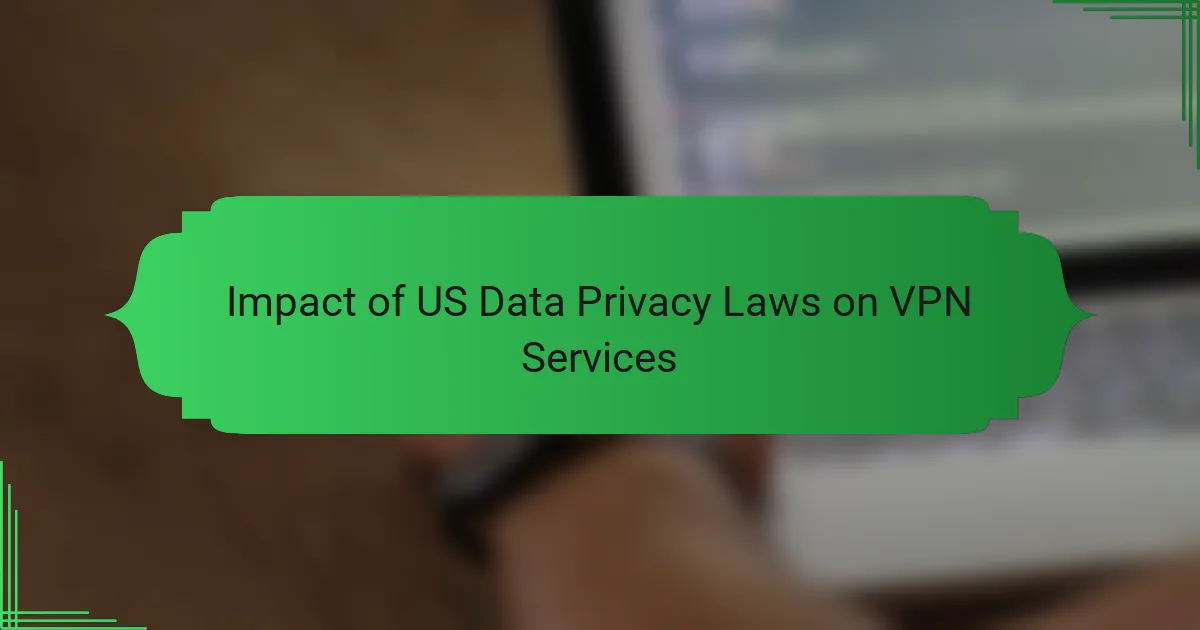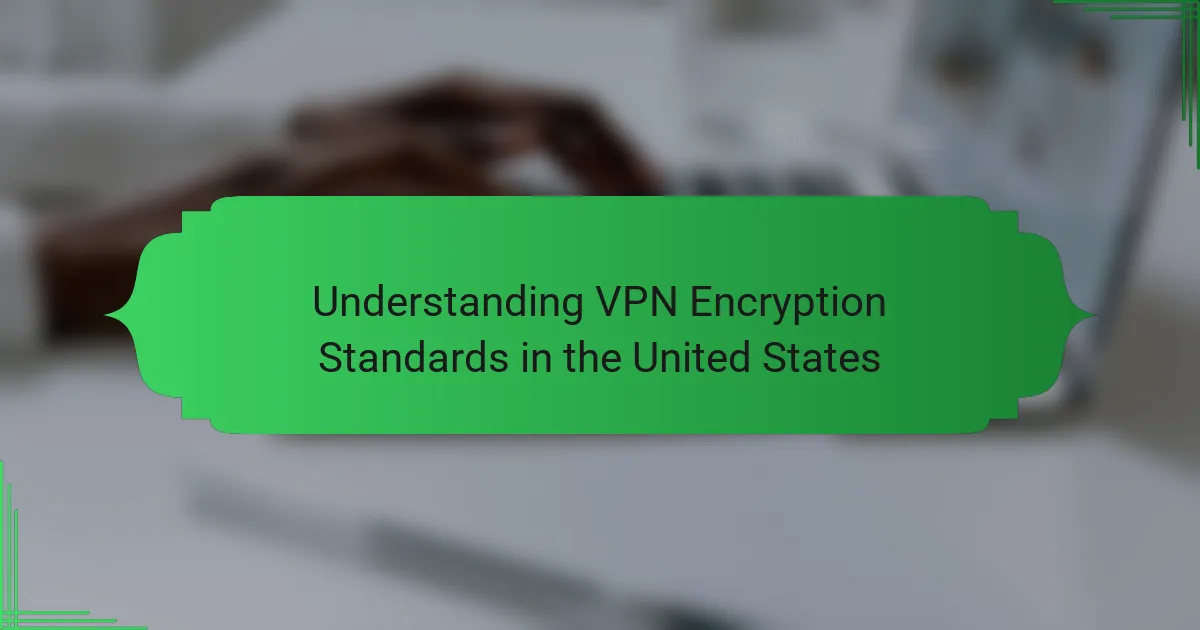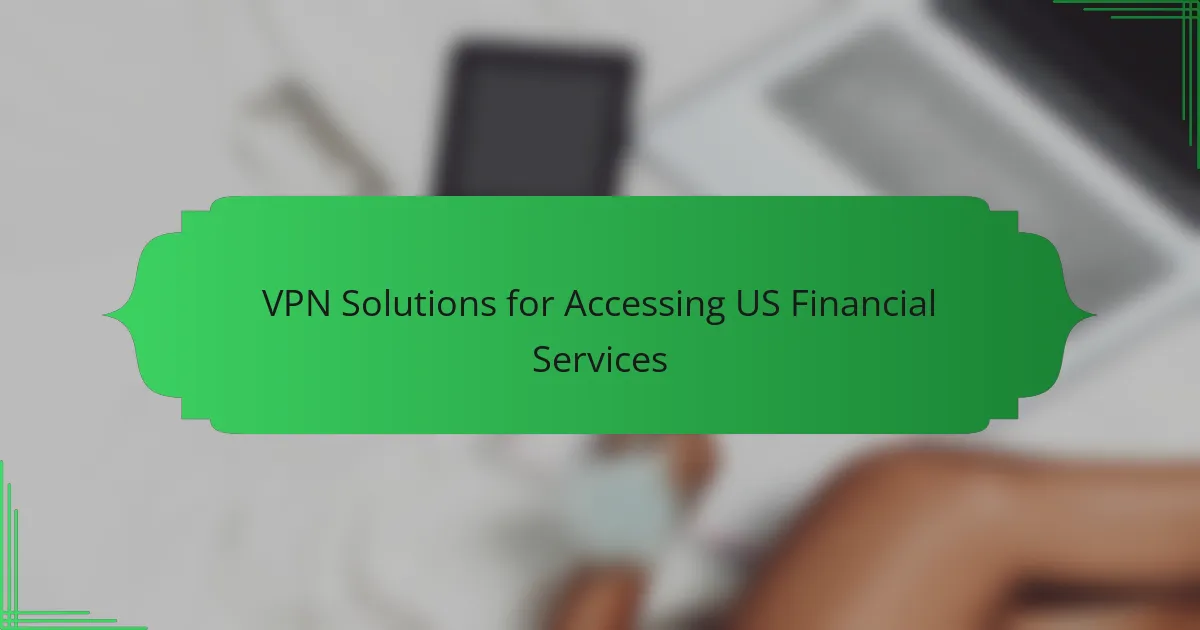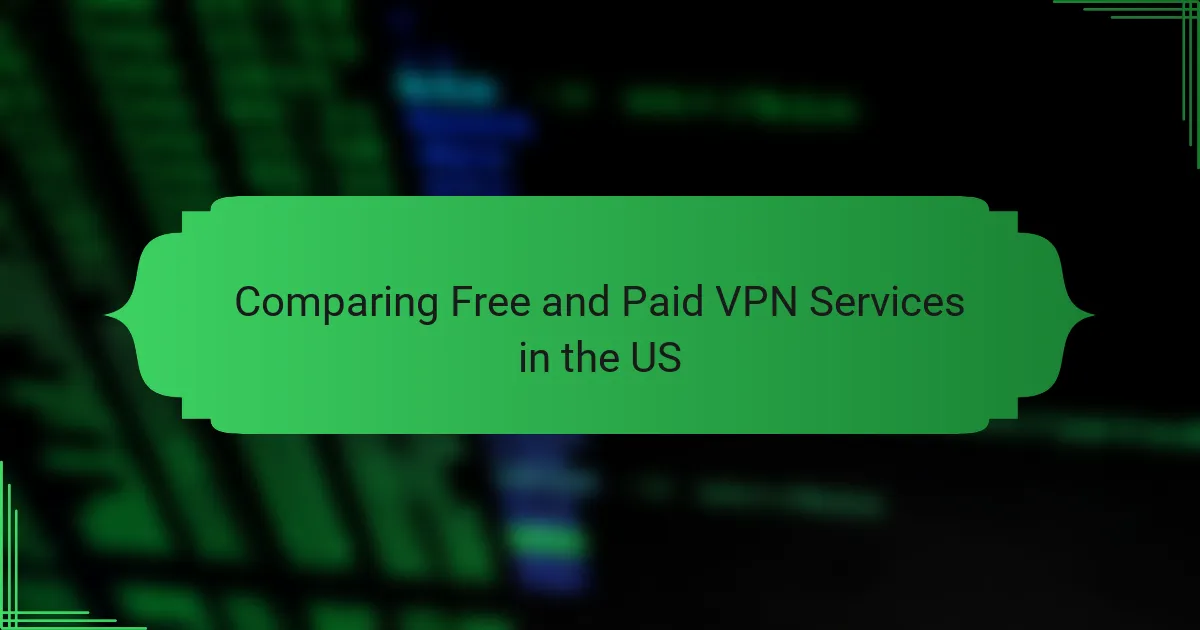The impact of US data privacy laws on VPN services is profound, as these regulations impose stricter compliance requirements that influence how user data is managed. Key laws such as the California Consumer Privacy Act (CCPA) and the Health Insurance Portability and Accountability Act (HIPAA) dictate the standards for transparency and data protection that VPN providers must follow. As these laws evolve, VPN services are compelled to adapt their practices to ensure they uphold user privacy while meeting legal obligations.
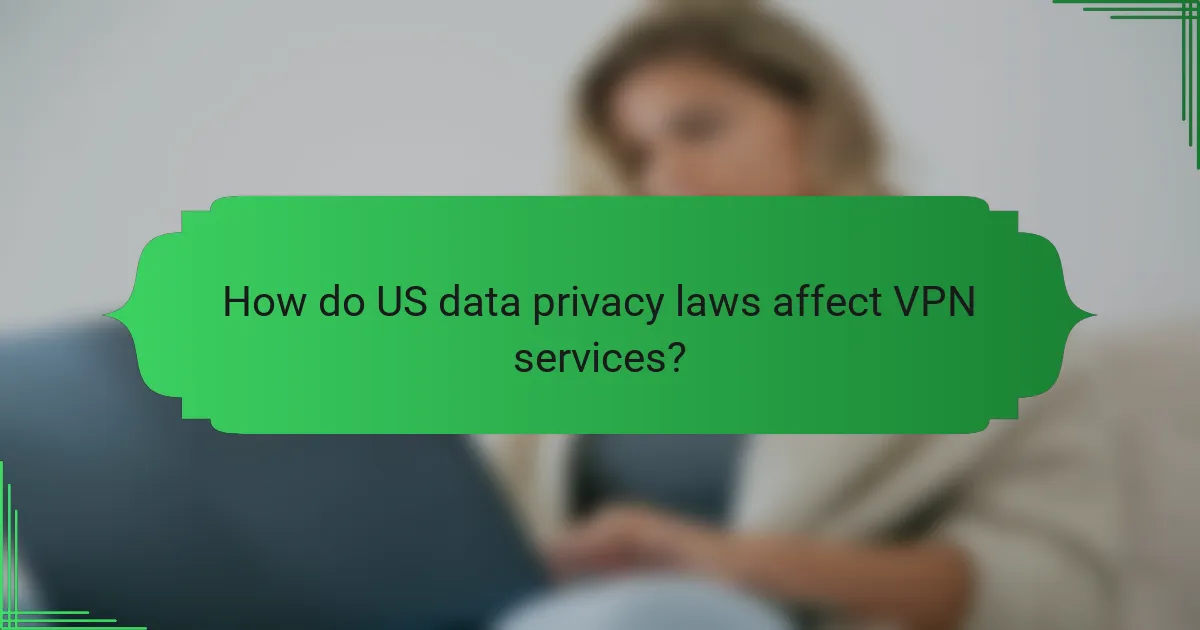
How do US data privacy laws affect VPN services?
US data privacy laws significantly impact VPN services by imposing stricter compliance requirements and altering how these services handle user data. As regulations evolve, VPN providers must adapt their practices to ensure they meet legal standards while maintaining user privacy.
Increased compliance requirements
VPN services must navigate a complex landscape of US data privacy laws, including the California Consumer Privacy Act (CCPA) and the Health Insurance Portability and Accountability Act (HIPAA). These regulations require VPN providers to implement robust data protection measures, conduct regular audits, and maintain transparent privacy policies.
Failure to comply with these laws can result in substantial fines and legal repercussions, which can be detrimental to a VPN provider’s reputation and financial stability. As a result, many VPN services are investing in compliance teams and legal consultations to ensure adherence to these evolving regulations.
Changes in data handling practices
In response to US data privacy laws, VPN services are revising their data handling practices to minimize the collection and retention of user information. Many providers are adopting a no-logs policy, which means they do not store any user activity data, thereby enhancing privacy and reducing liability.
Additionally, VPN services are increasingly implementing encryption protocols and secure data transmission methods to protect user information from unauthorized access. These changes not only comply with legal requirements but also improve the overall security posture of the service.
Impact on user trust
The implementation of US data privacy laws can enhance user trust in VPN services, as consumers become more aware of their rights regarding data privacy. When VPN providers demonstrate compliance and transparency, users are more likely to feel secure in their choice of service.
However, if a VPN service fails to meet compliance standards or experiences a data breach, it can lead to a significant loss of trust. Users may seek alternatives that prioritize their privacy, making it crucial for VPN providers to maintain high standards of data protection and communication with their customers.
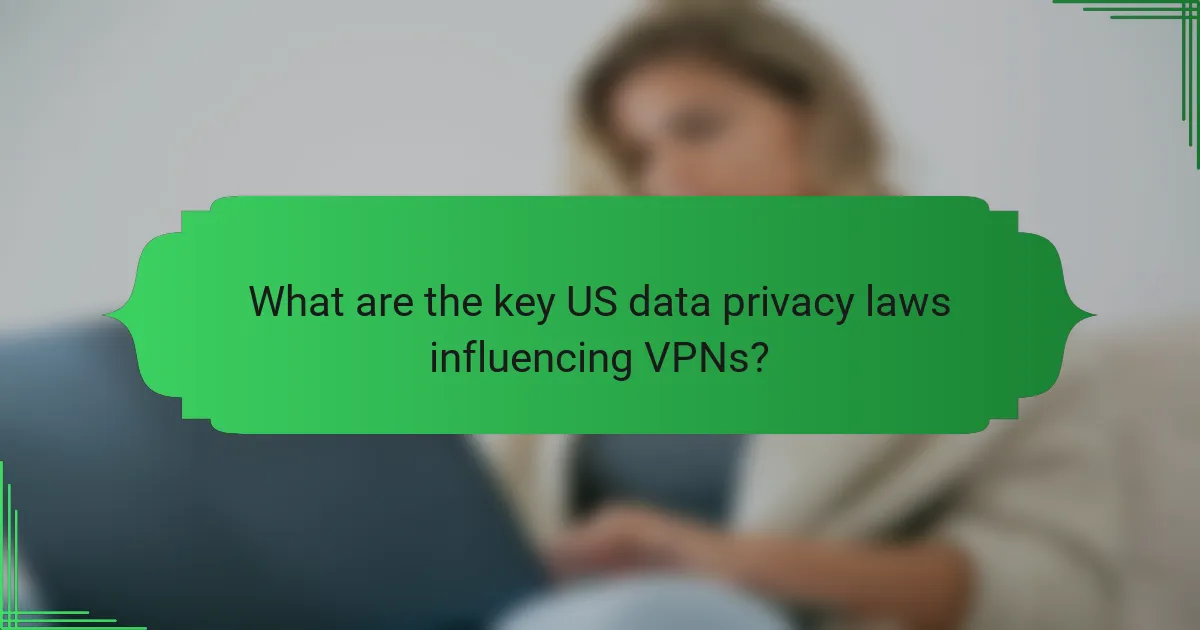
What are the key US data privacy laws influencing VPNs?
The key US data privacy laws influencing VPN services include the California Consumer Privacy Act (CCPA), the General Data Protection Regulation (GDPR) applicable to US entities, and the Health Insurance Portability and Accountability Act (HIPAA). These regulations shape how VPN providers handle user data, transparency, and compliance requirements.
California Consumer Privacy Act (CCPA)
The CCPA grants California residents specific rights regarding their personal information, including the right to know what data is collected, the right to delete it, and the right to opt-out of its sale. VPN services operating in California must comply with these regulations, ensuring they provide clear disclosures about data practices.
For VPN users, this means they can request detailed information about how their data is used and shared. VPN providers may need to implement processes to facilitate these requests, which can impact their operational efficiency.
General Data Protection Regulation (GDPR)
Although GDPR is a European regulation, it affects US-based VPN services that handle data of EU citizens. VPN providers must ensure compliance by implementing strict data protection measures, obtaining user consent, and allowing users to access and delete their data.
For VPN users, GDPR compliance means greater control over personal information and stronger protections against data breaches. VPN services may need to adjust their policies and practices to meet these stringent requirements, potentially increasing costs.
Health Insurance Portability and Accountability Act (HIPAA)
HIPAA governs the handling of protected health information (PHI) in the healthcare sector. VPN services that cater to healthcare providers or handle PHI must comply with HIPAA regulations, ensuring data encryption and secure transmission.
For users in the healthcare industry, this means that using a compliant VPN is crucial for safeguarding sensitive health data. VPN providers must implement specific security measures and may need to sign Business Associate Agreements (BAAs) with healthcare clients to ensure compliance.
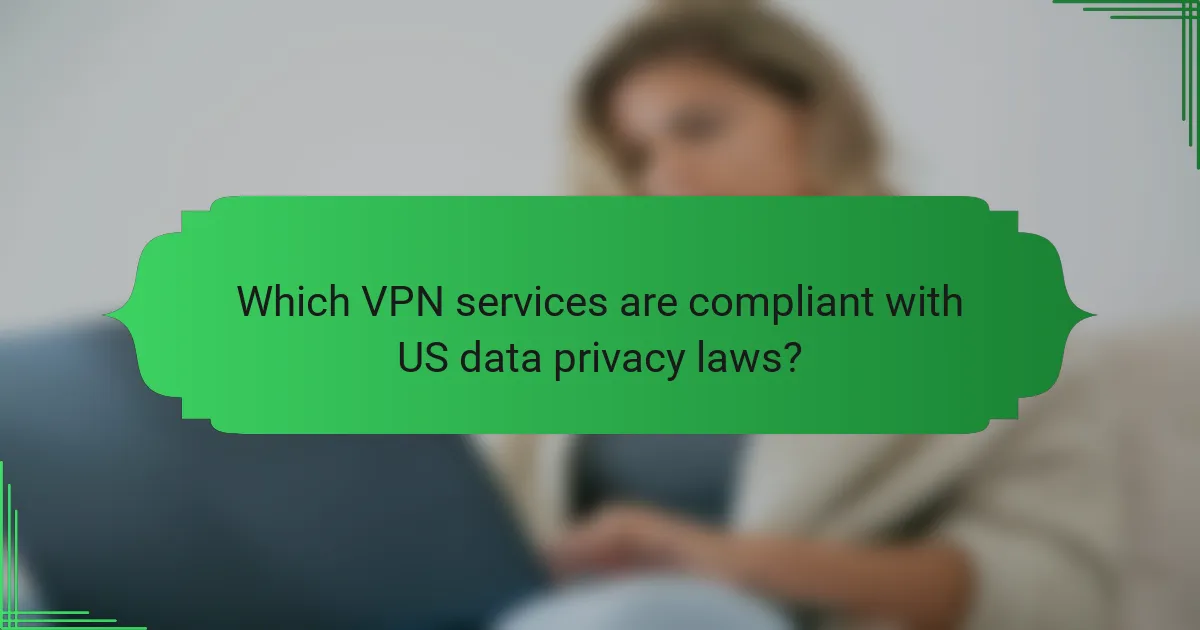
Which VPN services are compliant with US data privacy laws?
Several VPN services have taken steps to comply with US data privacy laws, focusing on user data protection and transparency. Compliance typically involves adhering to regulations like the California Consumer Privacy Act (CCPA) and implementing strict no-logs policies.
ExpressVPN compliance
ExpressVPN is known for its strong commitment to user privacy and compliance with US data privacy laws. The service operates under a strict no-logs policy, meaning it does not store any user activity or connection logs, which aligns with the requirements of the CCPA.
Additionally, ExpressVPN undergoes regular independent audits to verify its privacy practices, enhancing user trust. This transparency is crucial for users concerned about data privacy in the US.
NordVPN compliance
NordVPN also emphasizes compliance with US data privacy laws, particularly through its no-logs policy. The service has been independently audited, confirming that it does not track user activities or store personal data, which is essential for compliance with regulations like the CCPA.
NordVPN’s transparency reports further demonstrate its commitment to user privacy, allowing users to understand how their data is handled. This level of openness is beneficial for users seeking reliable VPN services in the US.
Surfshark compliance
Surfshark is compliant with US data privacy laws, offering a no-logs policy that ensures user data remains private and untracked. The service has been audited to confirm its adherence to these privacy standards, making it a trustworthy option for users in the US.
Moreover, Surfshark provides features like CleanWeb and MultiHop, which enhance user security and privacy. These features, combined with its compliance efforts, make Surfshark a competitive choice for those prioritizing data protection in the US.
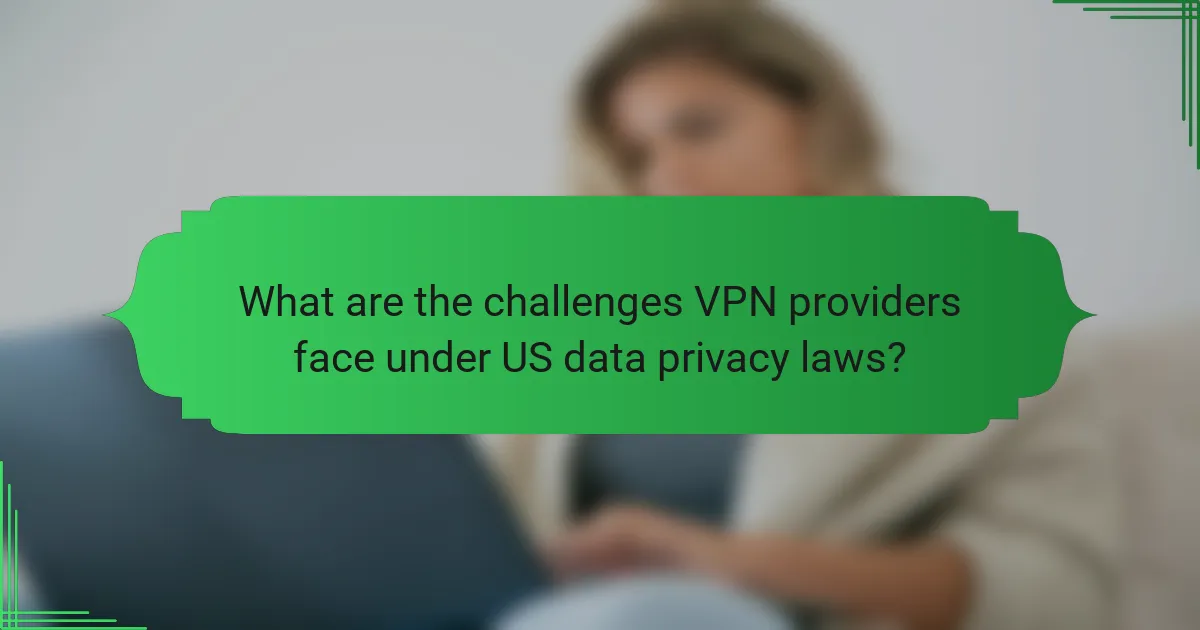
What are the challenges VPN providers face under US data privacy laws?
VPN providers in the US encounter several challenges due to data privacy laws that impact their operations and user trust. These challenges include strict data retention policies, legal requests for user data, and varying state regulations that complicate compliance efforts.
Data retention policies
Data retention policies dictate how long VPN providers must store user data, which can conflict with their commitment to privacy. In the US, some laws may require retention of certain data for a specified period, while others encourage minimal data storage to protect user anonymity.
Providers must navigate these policies carefully, balancing compliance with privacy commitments. For instance, a VPN that retains logs for a few months may face scrutiny, while a no-logs policy could enhance user trust but complicate legal compliance.
Legal requests for user data
VPN providers often receive legal requests from law enforcement agencies seeking user data, which poses a significant challenge. These requests can vary in scope and urgency, compelling providers to have clear protocols for handling them while maintaining user privacy.
Providers must assess the legitimacy of requests and determine how to respond without compromising their privacy policies. Transparency with users about potential data requests can help maintain trust, but it may also require legal expertise to navigate complex regulations.
Inconsistent state regulations
The landscape of data privacy laws in the US is fragmented, with different states implementing varying regulations. This inconsistency creates challenges for VPN providers, as they must ensure compliance with multiple legal frameworks across jurisdictions.
For example, some states may have stricter requirements regarding data handling and user consent, while others may not impose such regulations. VPN providers should stay informed about state-specific laws and consider adopting the most stringent standards to simplify compliance and enhance user confidence.
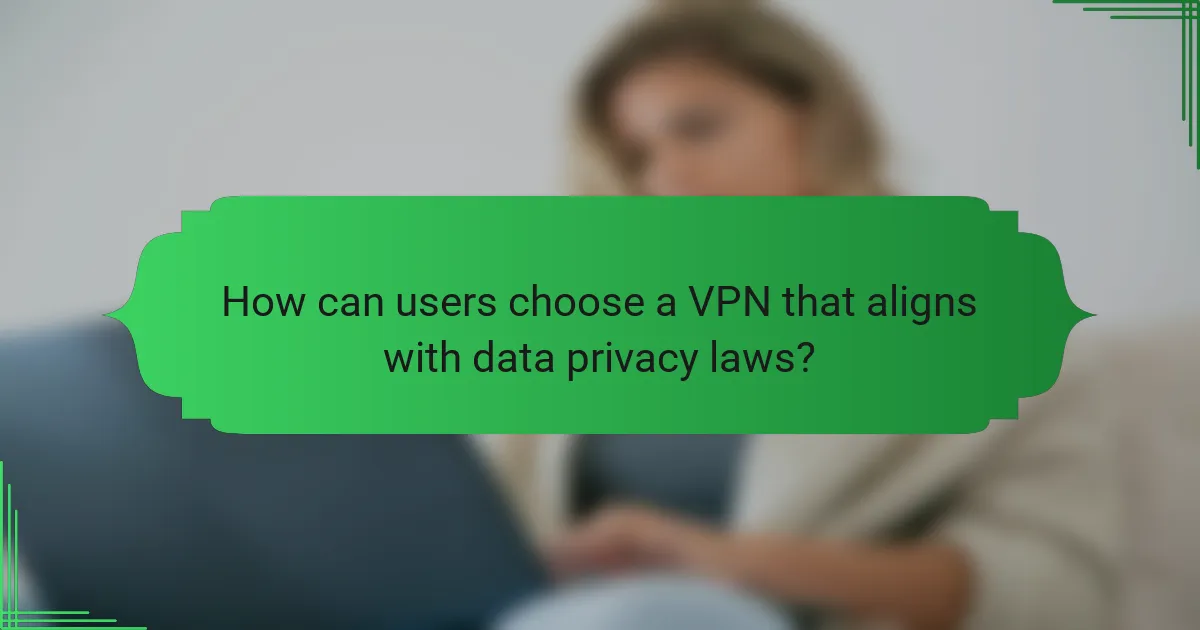
How can users choose a VPN that aligns with data privacy laws?
To choose a VPN that aligns with data privacy laws, users should focus on the provider’s commitment to protecting personal data and compliance with relevant regulations. Key factors include the clarity of privacy policies and the results of third-party audits.
Review privacy policies
Privacy policies are crucial for understanding how a VPN handles user data. Users should look for clear statements regarding data collection, storage, and sharing practices. A trustworthy VPN will explicitly state that it does not log user activity or sell data to third parties.
When reviewing these policies, pay attention to the jurisdiction in which the VPN operates, as this can affect compliance with local data privacy laws. For instance, VPNs based in countries with strict privacy regulations, like Switzerland or the EU, may offer stronger protections than those in less regulated regions.
Check third-party audits
Third-party audits provide an independent assessment of a VPN’s privacy practices and security measures. Users should look for VPNs that have undergone regular audits by reputable firms, as this demonstrates a commitment to transparency and accountability.
When evaluating audit results, consider whether the findings are publicly available and if they confirm the VPN’s claims about data handling. A VPN that has successfully passed audits is generally a safer choice, as it indicates adherence to industry standards and best practices.
